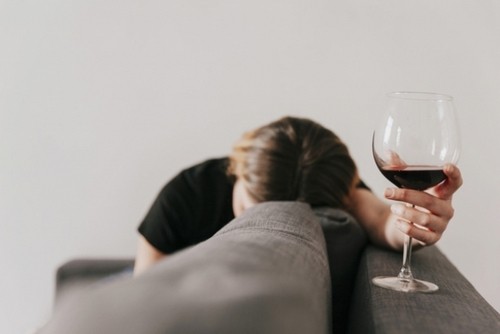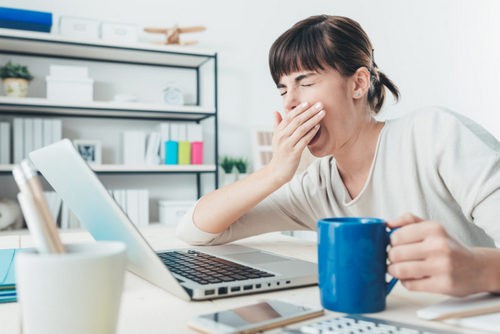The study agreed to take part 42 young people who admitted that they are prone to excessive alcohol consumption. Every day for a week they filled out questionnaires, which recorded the amount of alcohol consumed. At the same time, all study participants had to wear devices to measure the duration of their sleep.
As people continue to drink, their sleep patterns are again disturbed. Therefore, do not deceive yourself and believe that alcohol can solve the problem of insomnia.
The idea that drinking alcohol improves sleep is actually just a myth. So the good old advice – walks in the fresh air before going to bed, soothing soft drinks, and the increasingly popular “digital detox after 22:00” give you a much better chance to sleep and feel awake and rested.
As it turned out during the study, a short dream and an early rise subsequently lead to a large consumption of alcohol by a person who does not get enough sleep. Perhaps this is due to the desire to somehow relieve stress and strain due to lack of sleep. At the same time, giving the illusion of relaxation, alcohol, alas, does not have a positive effect on the biorhythms of the body. As the experiment showed, those who consume large volumes of alcohol tend to go to bed later (which means they don’t get enough sleep again) than those who drink a little or stay sober. But this is not the only reason why you should give up drinking alcohol before bedtime.
We have already found that many people with insomnia drink before bedtime to sleep. After the initial stimulating effect, the calming effect of alcohol can shorten the time needed to fall asleep. But the effect of alcohol does not end there. Studies show that alcohol consumed within an hour before bedtime disrupts the second half of the sleep period, causing a person to often wake up. In addition, studies have shown that with prolonged use, the effectiveness of alcohol decreases, and the negative effect on sleep quality, on the contrary, increases.

It has also been found that drinking alcohol even six hours before bedtime can increase wakefulness in the second half of sleep. Scientists concluded: alcohol causes lasting changes in how the body regulates sleep.
Alcohol and respiratory distress
Chronic alcohol consumption appears to be associated with an increased risk of developing sleep apnea. Obstructive sleep apnea is a disorder in which the upper air channel narrows or closes during sleep, causing intermittent breathing. When this happens, the person wakes up to resume breathing, and then returns to sleep.
However, cases of apnea with subsequent awakening can occur hundreds of times during the night, which significantly reduces sleep time. In addition, drinking moderate or high amounts of alcohol at bedtime can narrow the airway, causing episodes of apnea in people who have not experienced this problem before.
Why is this so important? People with sleep apnea who drink two or more alcoholic drinks a day are five times more likely to experience fatigue accidents than those who don’t drink. In addition, studies have linked a combination of sleep apnea, snoring, and alcohol consumption with an increased risk of heart attack, arrhythmia, stroke, and sudden death.
Aging, alcohol and sleep disturbance
When people get older, they naturally wake up more often at night. Studies have shown that people over 65 wake up 20 or more times during the night. This leads to the fact that sleep becomes less calm and restoring, and can stimulate the use of alcohol to improve its quality. But the result is exactly the opposite – sleep becomes even more intermittent.
Alcohol, withdrawal symptoms and sleep
In patients with severe alcohol-related disorders, sleep disturbances include the longer time needed to fall asleep, frequent waking up, decreased sleep quality, and daytime fatigue.
It could be assumed that alcoholics who quit drinking quickly return to normal sleep patterns, but in fact, a sudden cessation of alcohol consumption can lead to withdrawal syndrome, which, on the contrary, exacerbates insomnia, making sleep more intermittent.
Alcoholics experiencing withdrawal symptoms may experience:
- Deterioration in sleep quality.
- Sleep consisting of short periods of REM sleep.
- A dream interrupted by numerous awakenings.
After the withdrawal symptoms disappear, drinkers may experience an improvement in sleep patterns, but for some, sleep patterns may never recover, even after several years of sobriety.
Studies have shown that recovering alcoholics, as a rule, do not sleep well, which leads to daytime fatigue. Ironically, if a person who refuses to drink returns to drinking, the sleep becomes calmer, at least at the initial stage. The deceptive feeling that drinking alcohol improves sleep is a major cause of relapse for many alcoholics. However, the relief they receive is temporary.



